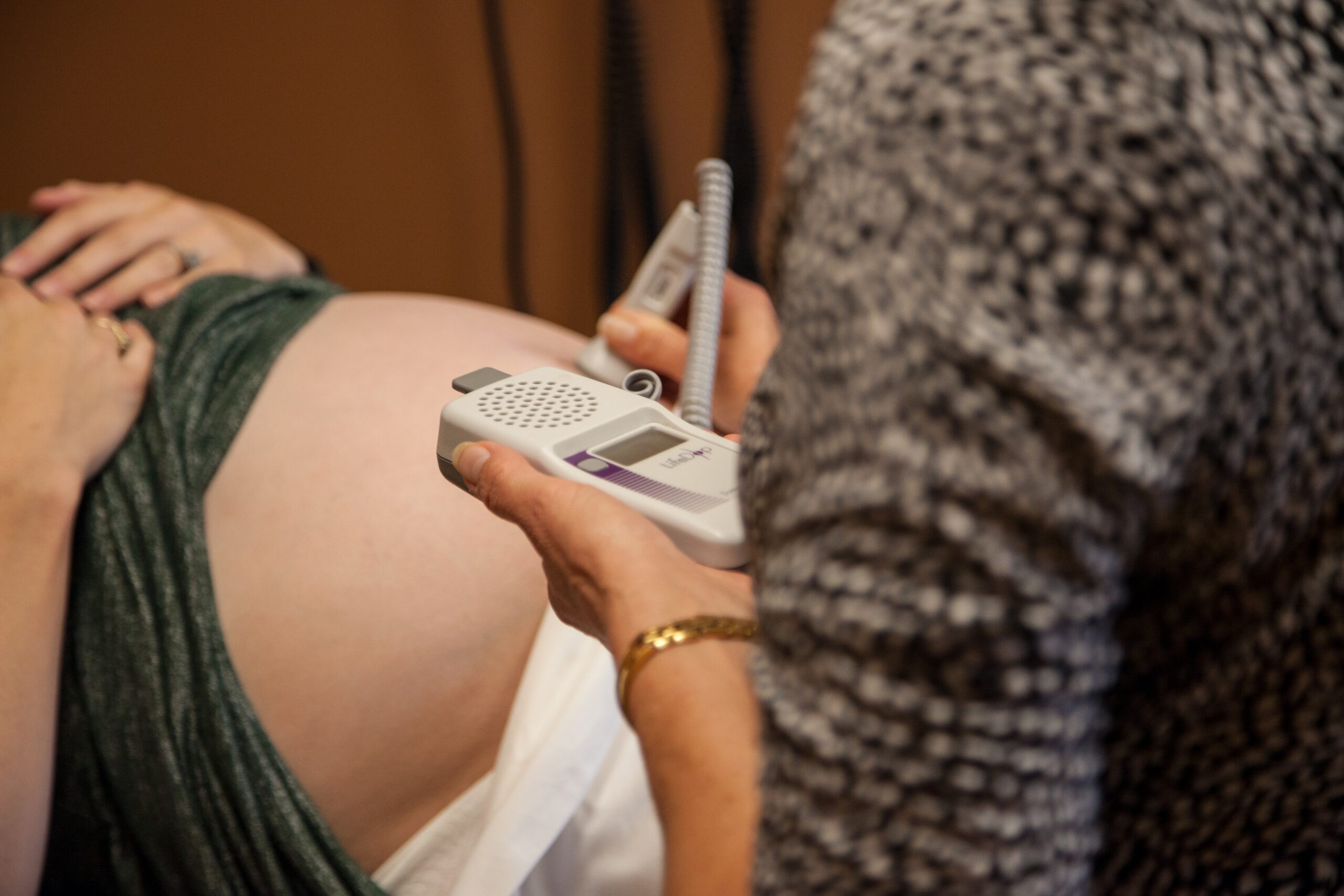If you’ve recently scheduled your first prenatal visit, you probably have a few questions. Are there documents you should bring to your first appointment? How often will you be seeing the doctor over the next nine months?
Here’s a guide to planning your prenatal visits, plus a few tips to help you prepare for your first appointment. It’s going to be a busy but exciting nine months, so this guide will help you keep things simple.

Planning Your Prenatal Visits
You’ll probably be seeing your doctor more than you’re used to during your pregnancy. Here’s a schedule of the visits to expect, plus common things that happen at each one.
Remember, every pregnancy is different, and this schedule is based on an uncomplicated pregnancy. If your pregnancy is high risk, you’ll see your doctor more often. Ask your provider if you have questions about your specific situation.
1. First Prenatal Visit
Your first prenatal visit usually takes place when you are about 10-12 weeks pregnant (a pregnancy confirmation visit and possibly an early ultrasound typically occurs between 5-8 weeks). This appointment is often the longest, and will include a general physical and routine prenatal labs.
You probably have a lot of questions about your pregnancy, and your first prenatal visit is a great time to get a lot of questions answered. What should be on your list to ask? Check out our guide to Making the Most of Your First Prenatal Visit, including 10 Questions You Need to Ask Your Provider.
2. Routine Check-Ups
For uncomplicated pregnancies, you should expect to see your provider every four weeks through 28 weeks. Between 28 and 36 weeks, expect to see your doctor every two weeks. From 36 weeks to delivery, expect to see your provider weekly.
Each check up will include a weight check, blood pressure check, and chance to listen to the fetal heartbeat. The fetal heartbeat is usually first detectable with a hand-held doppler between 10 and 12 weeks.
Remember, this is a general guide. You’ll need to see your doctor more frequently if you experience any pregnancy complications, including gestational diabetes or a multiple pregnancy.
{{cta(‘a338a247-8838-4d1e-9d2b-f2b5861107c2’)}}
3. Screenings
In addition to routine check ups, some of your prenatal appointments will include health screenings. Check out our complete prenatal care kit to learn when screenings usually occur.
Preparing for Your First Prenatal Visit
One of the most important things you can do to prepare for your first prenatal visit is to gather information about your medical history. In addition to general information you’re used to providing at checkups, also be prepared to share information about your family medical history, fertility history, infection exposure, and mental health history.
Since your first prenatal visit is often your longest, it’s also a great time to ask questions. Want to know how much weight you should expect to gain? Wondering if your favorite exercise routine is safe for baby? There are no silly questions, and your provider will be happy to help you plan for a safe, healthy pregnancy.
Have more questions? Check out our guide on How to Make the Most of Your First Prenatal Visit, including 10 Questions You Need to Ask!